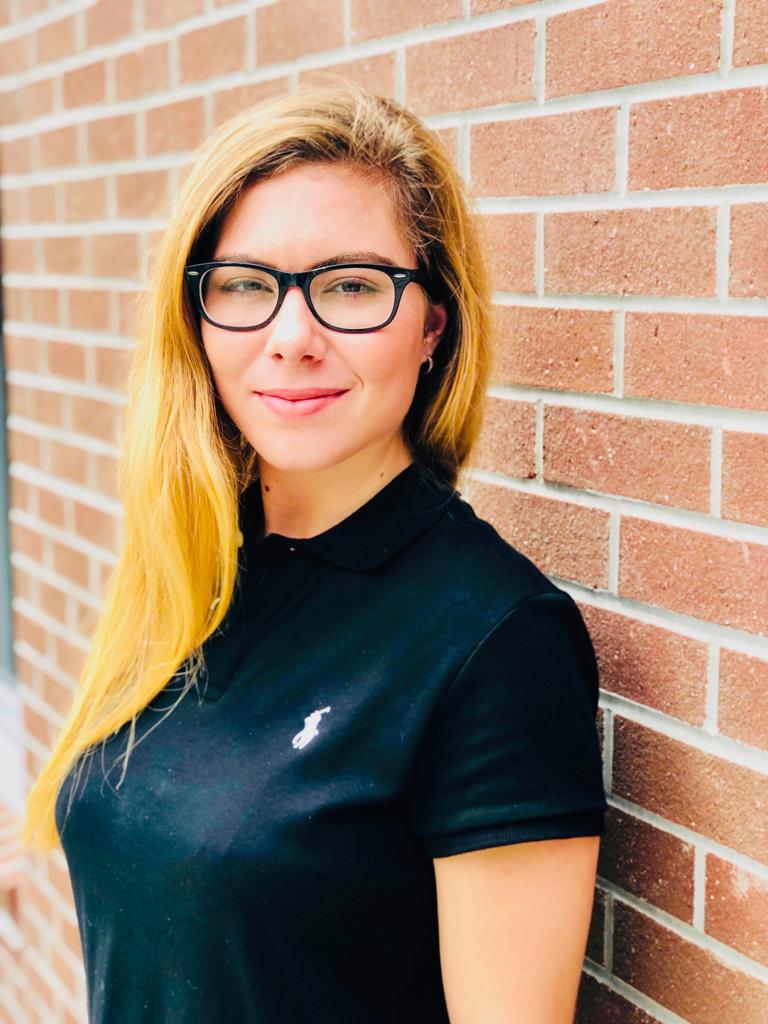
Astore balances summer work with staying connected with others through social media blog page and virtual meetings.
This month, the College of Sciences is checking in to see what our students are up to and how they’re doing. In the face of an unprecedented pandemic, we want to know: what does summertime look like? Read the other stories in our Stay at Home Summer series:
- Sophia Martin Gets Creative, Fosters Positive Mental Health
- Nylah Boone Stays Connected with Social Media, Incorporates Self-Care Activities
- Edward Freeman Uses Resilience Strategies to Navigate a Summer of Uncertainty
Courtney Astore is a second year Ph.D. student in the Bioinformatics program. While her summer days are packed with virtual classes and research activities, Astore shares that she’s also set aside time for exercise, time with family, and leisure activities like reading.
A typical day for Astore this summer: “Wake up, make a cup of coffee, check my emails, proofread grant proposals, attend virtual lectures (as a student and teacher!), code (lots of code...), more coffee, virtual group meetings for class, writing papers for publications, reading literature, checking Covid-19 numbers on Worldometer, cycling, cooking, and virtually talking with my family and friends.”
“From teaching to researching to also being a student, my free time is limited,” she shares. “However, I love staying busy — and I especially love the research I do in my group.” That research group is Jeffrey Skolnick’s Center for the Study of Systems Biology, where Astore creates computational tools to study disease etiology (the causes of diseases) for enhancing diagnostic and therapeutic measures.
“I'm thankful that we are able to have virtual group meetings. It's fun seeing my colleagues out of the normal, everyday setting,” says Astore. Although she says that the transition to virtual meetings has been seamless, Astore shares that she misses in-person work dynamics. "I am really missing working [on campus] at Georgia Tech; there is an evident vibe that motivates me.”
Beyond her research group, this summer Astore is taking Applied Combinatorics and Introduction to Database Systems, and is a graduate teaching assistant for the Biological Principals Lab. She also operates a blog called The Binary Blonde on Instagram, where she shares relatable content about her experiences as a woman in science.
“I started The Binary Blonde last year, primarily to encourage women and individuals with disabilities to pursue careers in STEM by sharing my journey and experiences in becoming a scientist,” explains Astore.
Her username stems from an experience at a high school science fair, when she realized that very few women there were competing in computer science.
“When I was in high school, I competed in several science fairs — I loved every inch of it,” she says. “People at my school started calling me ‘the researcher’. I never thought twice about missing out on the ‘normal’ kid things to work on my projects. I also never thought twice about being a woman in STEM. In fact, I didn’t even know that women are less likely to participate in
STEM related endeavors and careers, until I began realizing that I was incredibly outnumbered in the computer science category.”
“To a degree, I felt uncomfortable and unworthy, but I didn’t let that stop me as I was incredibly excited to share the findings of my work,” Astore shares. Her final moniker came from a friend she met at another meeting, the Intel International Science and Engineering Fair. “I remember discussing a machine learning algorithm I implemented with a new friend. He immediately said, ‘Hey, we should call you the binary blonde!’ — and it stuck.”
This summer, Astore has used The Binary Blonde to share her experiences working remotely and staying motivated in the midst of a global pandemic. Recently, Astore shared a comedic TikTok video about ‘the many faces at a Ph.D. defense,’ where she role-played as advisor, judge, and her own boyfriend to show what it’s like to defend a thesis.
“This TikTok video was actually my first one! Although I'm quite far from my actual thesis defense, it's nice to imagine what it may be like.”
Astore also uses her social media pages to send support to the Georgia Tech community and everyone affected by Covid-19.
“We may never be ready for what tomorrow holds, but I truly hope this brings more importance to healthcare workers, scientists, and engineers working diligently to save us, find cures for us, and keep us safe,” urges Astore. “I’m excited that I am in a position to be a positive contributor to help combat Covid-19. Let’s invent better preventative, diagnostic, and treatment options to help us be prepared for times like this."